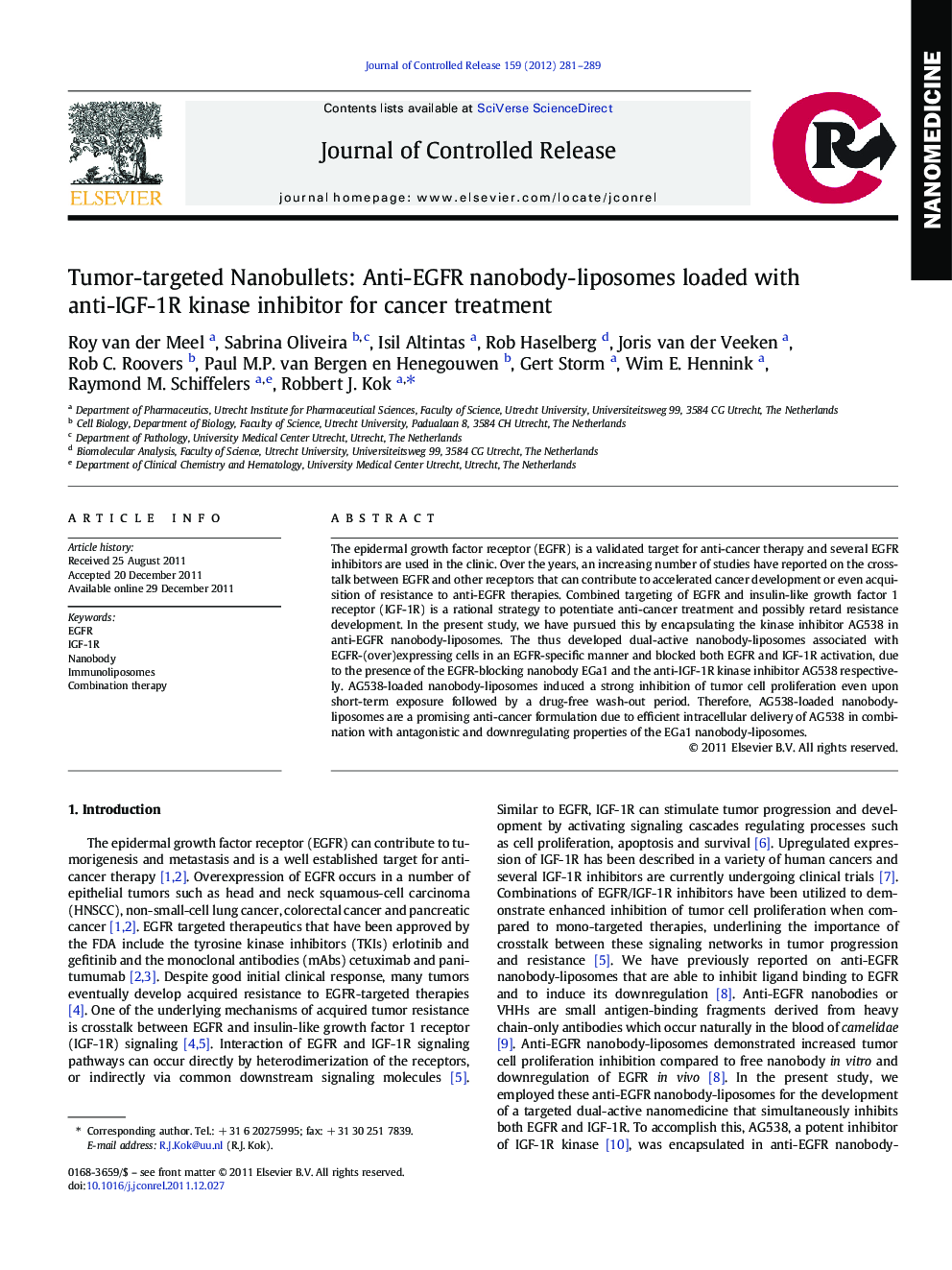| کد مقاله | کد نشریه | سال انتشار | مقاله انگلیسی | نسخه تمام متن |
|---|---|---|---|---|
| 1424813 | 986740 | 2012 | 9 صفحه PDF | دانلود رایگان |

The epidermal growth factor receptor (EGFR) is a validated target for anti-cancer therapy and several EGFR inhibitors are used in the clinic. Over the years, an increasing number of studies have reported on the crosstalk between EGFR and other receptors that can contribute to accelerated cancer development or even acquisition of resistance to anti-EGFR therapies. Combined targeting of EGFR and insulin-like growth factor 1 receptor (IGF-1R) is a rational strategy to potentiate anti-cancer treatment and possibly retard resistance development. In the present study, we have pursued this by encapsulating the kinase inhibitor AG538 in anti-EGFR nanobody-liposomes. The thus developed dual-active nanobody-liposomes associated with EGFR-(over)expressing cells in an EGFR-specific manner and blocked both EGFR and IGF-1R activation, due to the presence of the EGFR-blocking nanobody EGa1 and the anti-IGF-1R kinase inhibitor AG538 respectively. AG538-loaded nanobody-liposomes induced a strong inhibition of tumor cell proliferation even upon short-term exposure followed by a drug-free wash-out period. Therefore, AG538-loaded nanobody-liposomes are a promising anti-cancer formulation due to efficient intracellular delivery of AG538 in combination with antagonistic and downregulating properties of the EGa1 nanobody-liposomes.
The anti-IGF-1R kinase inhibitor AG538 was encapsulated in PEGylated liposomes decorated with the EGFR-blocking nanobody EGa1. EGa1 serves as a targeting ligand for intracellular tumor delivery of AG538 and additionally contributes to the mode of action of this nanomedicine by blocking EGFR activation and downregulation of EGFR.Figure optionsDownload high-quality image (179 K)Download as PowerPoint slide
Journal: Journal of Controlled Release - Volume 159, Issue 2, 30 April 2012, Pages 281–289